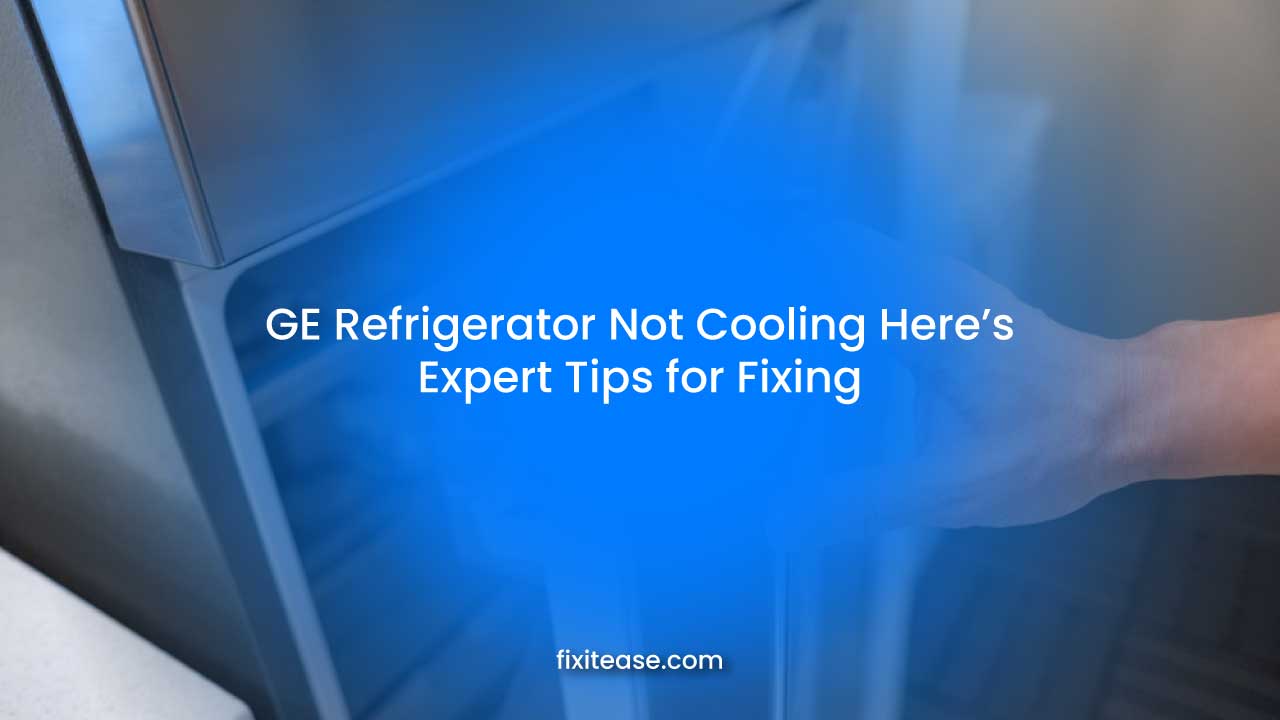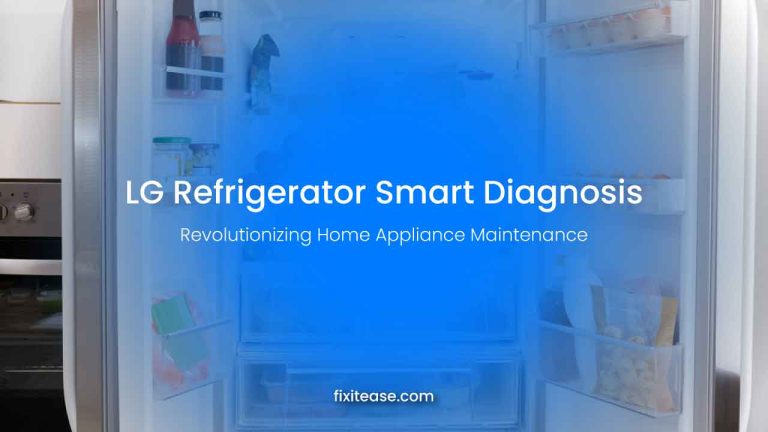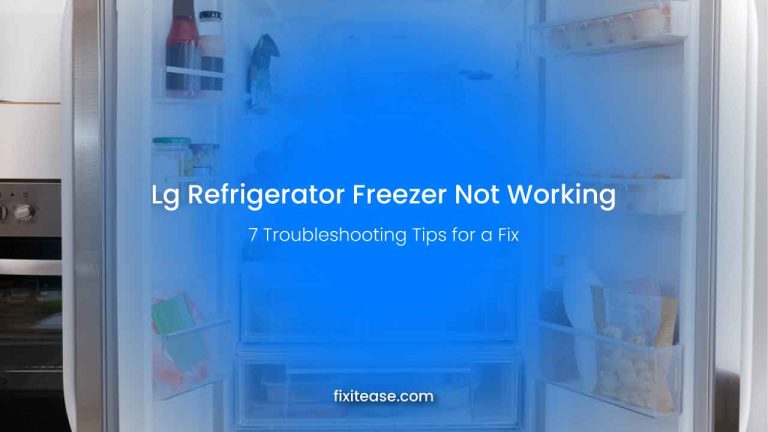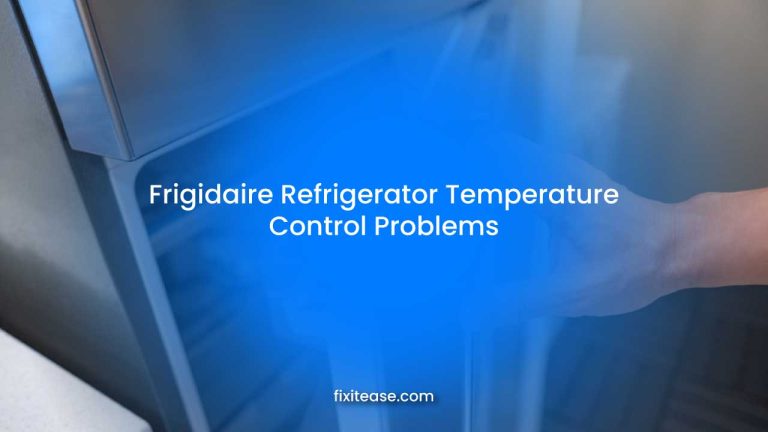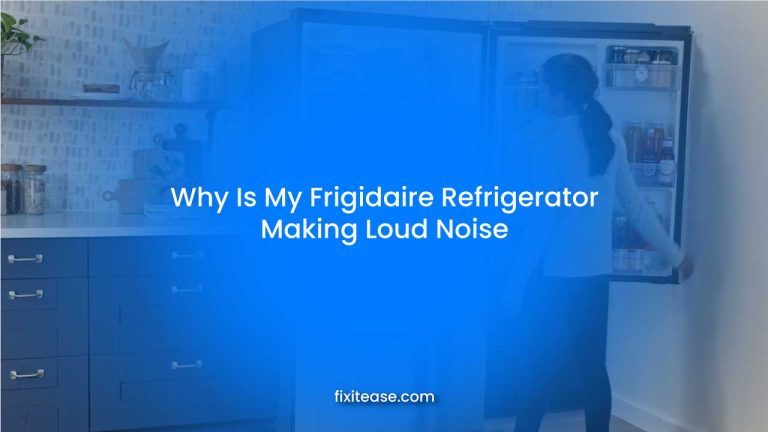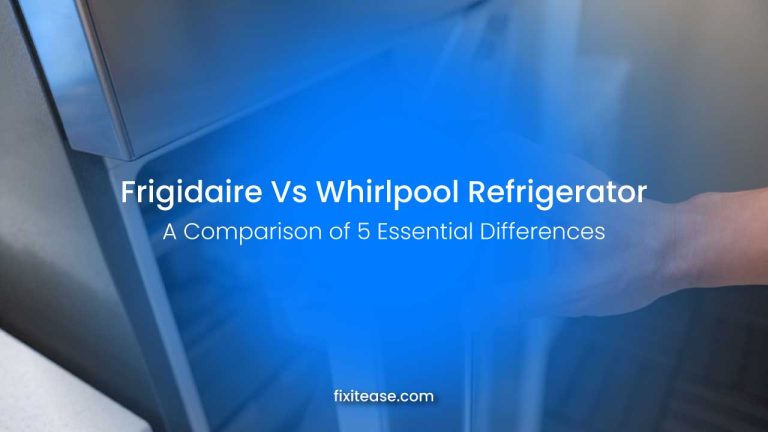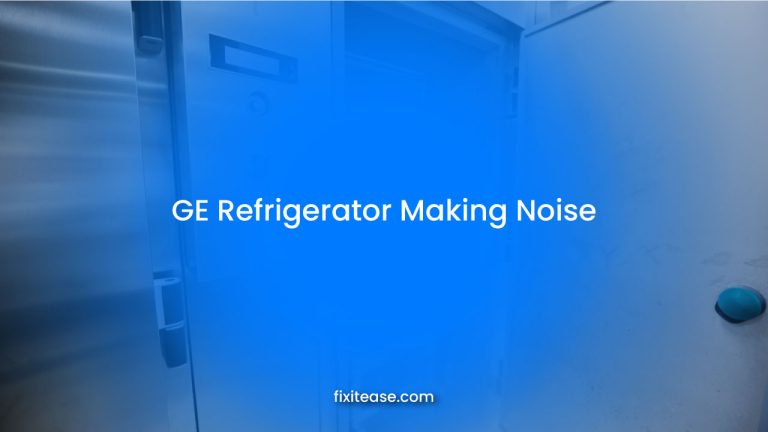GE Refrigerator Not Cooling? Here’s Expert Tips for Fixing
Is your GE refrigerator not cooling like it should? You’re not alone. Many homeowners have faced this frustration of opening their fridge to find warm food and spoiled groceries. A malfunctioning refrigerator can be a major inconvenience, but understanding the potential causes and solutions can help you troubleshoot the issue.
GE refrigerator that is not cooling properly can be caused by various factors, including problems with the evaporator coils, fan motors, condenser coils, or the evaporator fan motor. It could also be due to issues with the control board, defrost thermostat, temperature controls, or even the refrigerator’s temperature settings.
In the following sections, we’ll serve up clear, step-by-step instructions for troubleshooting the issue, ensuring your refrigerator is back to its cooling best.
Common Symptoms of a GE Refrigerator Stopped Cooling
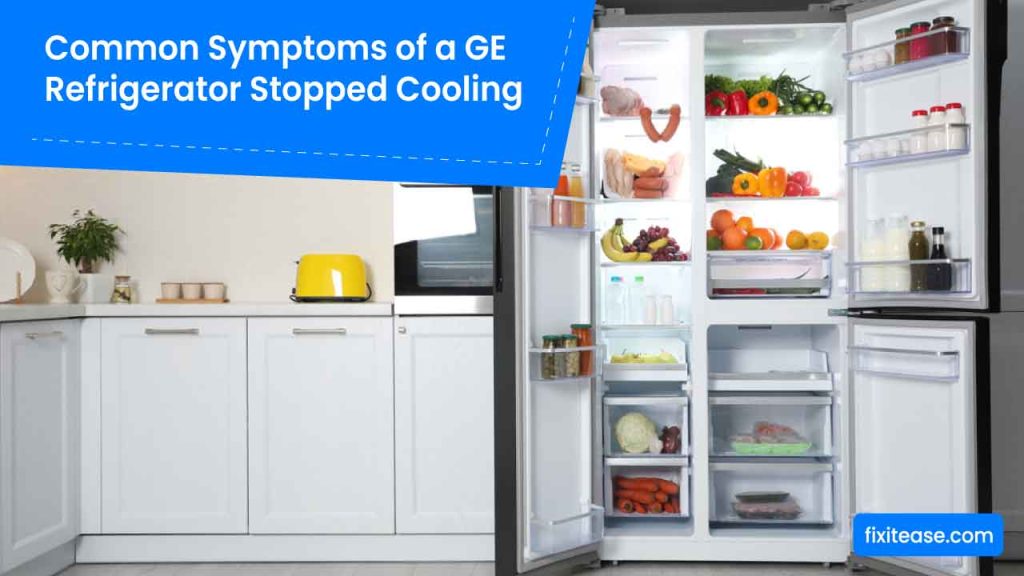
When your GE refrigerator is not cooling properly, there are several common symptoms to look out for.
- Warm Interior: One of the most apparent symptoms is that the refrigerator’s interior is warmer than it should be. Items stored in the fridge may not stay adequately chilled, and you might notice food spoilage.
- Cold Freezer, Warm Fridge: A clear indication of cooling trouble is when the freezer compartment maintains its chill while the refrigerator section warms up. This situation suggests that the refrigerator’s cold air circulation isn’t functioning correctly.
- Excessive Frost in the Freezer: If the freezer is accumulating an excessive amount of frost and ice, it can lead to cooling problems. Frost build-up can obstruct air circulation and hinder the refrigerator’s cooling capabilities.
- Uneven Cooling: Some parts of the refrigerator may feel colder than others. This inconsistency in temperature distribution within the fridge indicates that the cooling process is not functioning uniformly.
- Unusual Sounds: An unusual increase in noise from the refrigerator could signify trouble with the fan motors or other internal components responsible for maintaining cool temperatures.
- Condensation or Water Leaks: Excessive condensation or water pooling in and around the refrigerator can indicate cooling issues. This could be due to inefficient cooling processes.
- Ice Cream Softening in the Freezer: Ice cream stored in the freezer compartment might become softer than usual or partially melted, even though the freezer maintains some level of cooling.
- Frequent Cycling: If the refrigerator’s compressor or cooling system turns on and off more frequently than usual, it may struggle to maintain the desired low temperatures.
Potential Causes of GE Refrigerator Not Cooling
There are several potential causes for a refrigerator not cooling properly. It is important to identify the cause of the problem in order to effectively troubleshoot and resolve the issue.
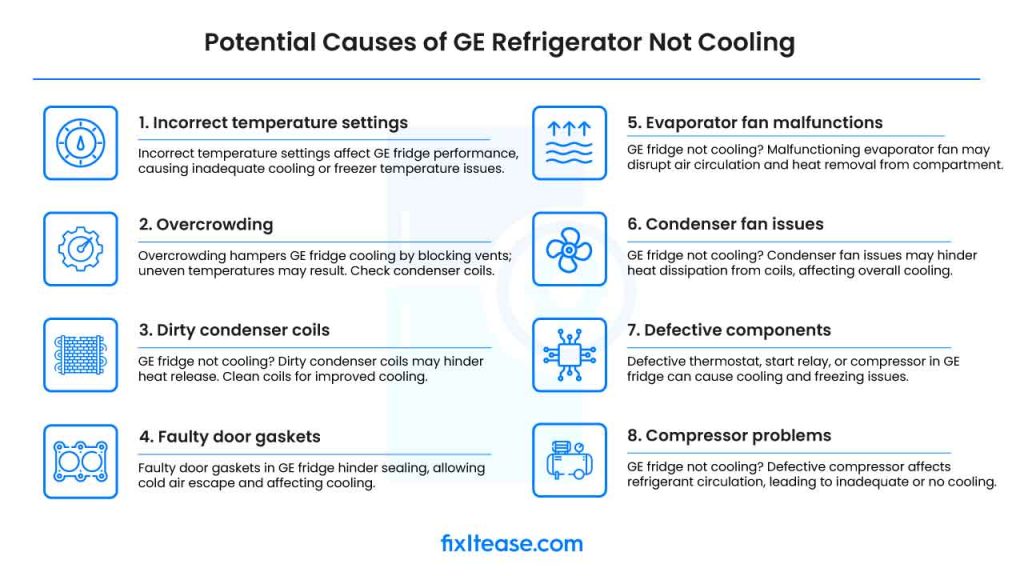
1. Incorrect temperature settings
Incorrect temperature settings is a common issue that can affect the performance of a GE refrigerator. When the temperature is not set correctly, it can lead to problems such as the refrigerator not cooling properly or the freezer compartment not maintaining the desired temperature.
It is also important to note that the USDA recommends a temperature range of 32-40°F (0-4°C) for slowing bacterial growth in the refrigerator compartment. Keeping the temperature within this range helps to ensure that your food remains fresh and safe to consume.
2. Overcrowding
Overcrowding is a common issue that can affect the cooling performance of your GE refrigerator. When the refrigerator is packed with too many items, it can block the air vents and disrupt proper airflow, preventing cold air from evenly circulating throughout the unit. This can result in certain areas of the refrigerator not cooling properly, while others may become excessively cold.
3. Dirty condenser coils
When a GE refrigerator is not cooling properly, one possible cause could be dirty condenser coils. Over time, these coils can accumulate dust and debris, hindering their ability to release heat and resulting in inadequate cooling. To address this issue, it is important to clean the condenser coils.
4. Faulty door gaskets
One common issue that can cause a GE refrigerator to not cool properly is faulty door gaskets. The gaskets are located along the edges of the refrigerator door and are responsible for creating a tight seal to keep the cold air inside. If the gaskets are damaged or not sealing properly, cold air can escape, leading to a rise in internal temperature.
5. Evaporator fan malfunctions
Evaporator fan malfunctions can be one of the potential causes of a GE refrigerator not cooling properly. The evaporator fan is responsible for circulating cool air over the evaporator coils, which help to remove heat from the refrigerator compartment.
6. Condenser fan issues
One common issue that can cause a GE refrigerator to not cool properly is a problem with the condenser fan. The condenser fan is responsible for removing heat from the refrigerator’s condenser coils. When the fan is not working correctly, it can prevent the coils from dissipating heat efficiently, resulting in inadequate cooling.
7. Defective components (thermostat, start relay, etc.)
Defective components such as the thermostat, start relay, and compressor can be potential issues when a GE refrigerator is not cooling properly. These components play a crucial role in the cooling process, and if they are faulty, it can result in a lack of cooling and freezing.
8. Compressor problems
Compressor problems can be a major cause of a GE refrigerator not cooling properly. The compressor is responsible for circulating the refrigerant and maintaining the desired temperature inside the refrigerator. If the compressor is defective, it can greatly impact the cooling process and result in insufficient cooling or no cooling at all.
Troubleshoot and Fix a GE Refrigerator Not Cooling
There are steps you can take to troubleshoot and fix the issue before calling for professional help. By following these guidelines, you can potentially solve the problem and get your refrigerator back to its proper temperature.
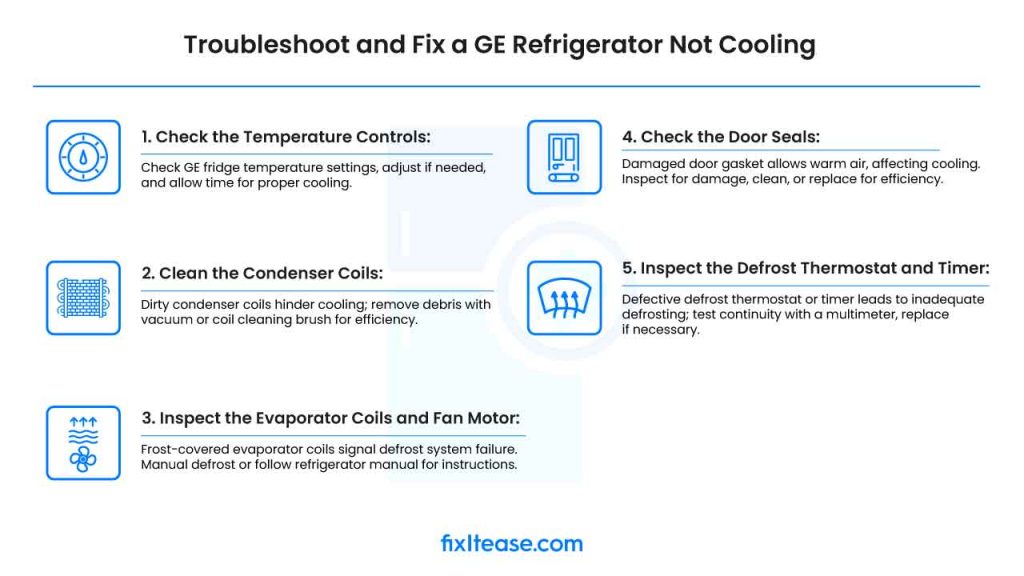
1. Check the Temperature Controls:
Start by checking the temperature settings on your GE refrigerator. Make sure they are set to the recommended levels for both the refrigerator compartment and the freezer compartment. Adjust them if necessary and give the refrigerator some time to reach the proper temperature.
2. Clean the Condenser Coils:
Dirty condenser coils can hinder the cooling process and cause the refrigerator to not cool properly. Remove any dust, debris, or pet hair from the coils using a vacuum cleaner or a coil cleaning brush. This will help improve the airflow and cooling efficiency.
3. Inspect the Evaporator Coils and Fan Motor:
The evaporator coils and fan motor are responsible for cooling the air inside the refrigerator. If they are covered in frost or ice, it may indicate a defrost system failure. You can manually defrost the coils using a hairdryer or follow the defrosting instructions in your refrigerator’s manual. If the fan motor is not running, it may need to be replaced.
4. Check the Door Seals:
A faulty rubber gasket on the refrigerator door can cause warm air to enter, affecting the cooling performance. Inspect the door seals for any signs of damage or wear. If necessary, clean them or replace them to ensure a proper seal.
5. Inspect the Defrost Thermostat and Timer:
A faulty defrost thermostat or timer can cause the refrigerator to not defrost properly, resulting in cooling issues. Use a multimeter to test the continuity of these components. If they are defective, they will need to be replaced.
Seek Professional Help
Attempting repairs without proper knowledge and expertise can be risky, potentially causing further damage or even electrical hazards. It is crucial to recognize when it’s best to seek the assistance of a licensed technician who has experience in refrigerator repair.
If these troubleshooting steps do not resolve the issue, it is recommended to contact a licensed technician or GE refrigerator repair service. They will have the expertise and knowledge to diagnose and fix any underlying problems with your refrigerator’s cooling system.
Contact GE Support for any kind of help here – https://www.geappliances.com/ge/service-and-support/contact.htm
Conclusion
Understanding the common causes of a GE refrigerator not cooling is essential for troubleshooting and resolving the issue effectively. While some problems can be addressed with simple maintenance tasks like cleaning the condenser coils or replacing faulty door gaskets, other issues may require professional help. The health and proper functioning of your refrigerator depend on maintaining the correct temperature and addressing any issues promptly.
FAQs
1. Can overcrowding the refrigerator cause it not to cool properly?
Yes, an overcrowded refrigerator can obstruct airflow and lead to inconsistent cooling. Ensure that air vents are not blocked and there’s space between items for proper circulation.
2. How often should I clean the condenser coils of my GE refrigerator?
It’s recommended to clean the condenser coils every six months to ensure efficient cooling. Dust and debris on the coils can reduce the fridge’s cooling capacity.
3. What does it mean if the evaporator fan is not working in my GE refrigerator?
The evaporator fan circulates cold air in the refrigerator. If it’s not working, the fridge may not cool correctly. Check for obstructions or damage, and if needed, replace the fan.
4. Is it safe to attempt to fix my GE refrigerator not cooling issue myself?
While some troubleshooting can be done by homeowners, it’s essential to be cautious when dealing with refrigerator repairs. If you’re unsure, it’s advisable to consult a professional technician to avoid any safety risks.

